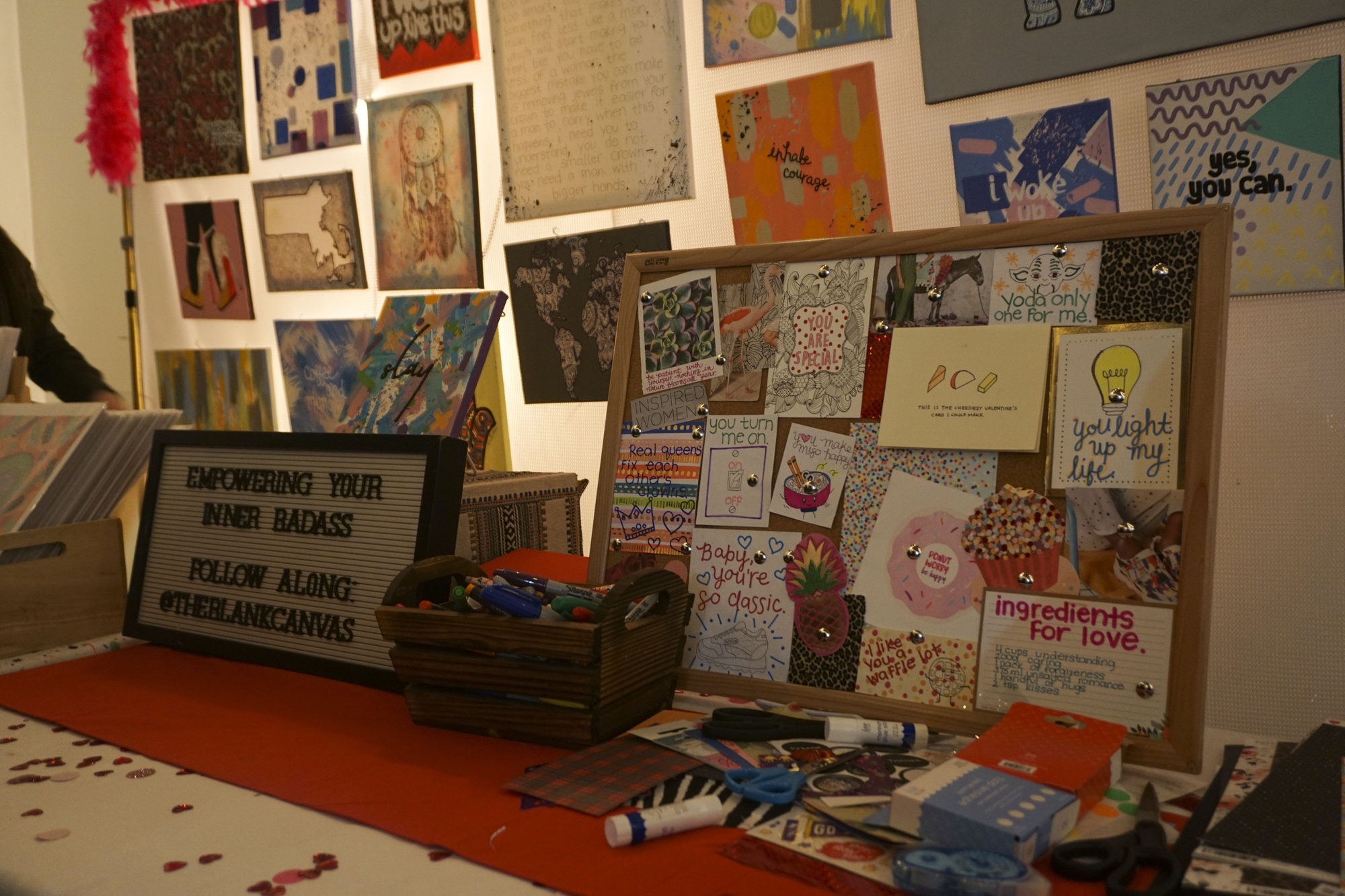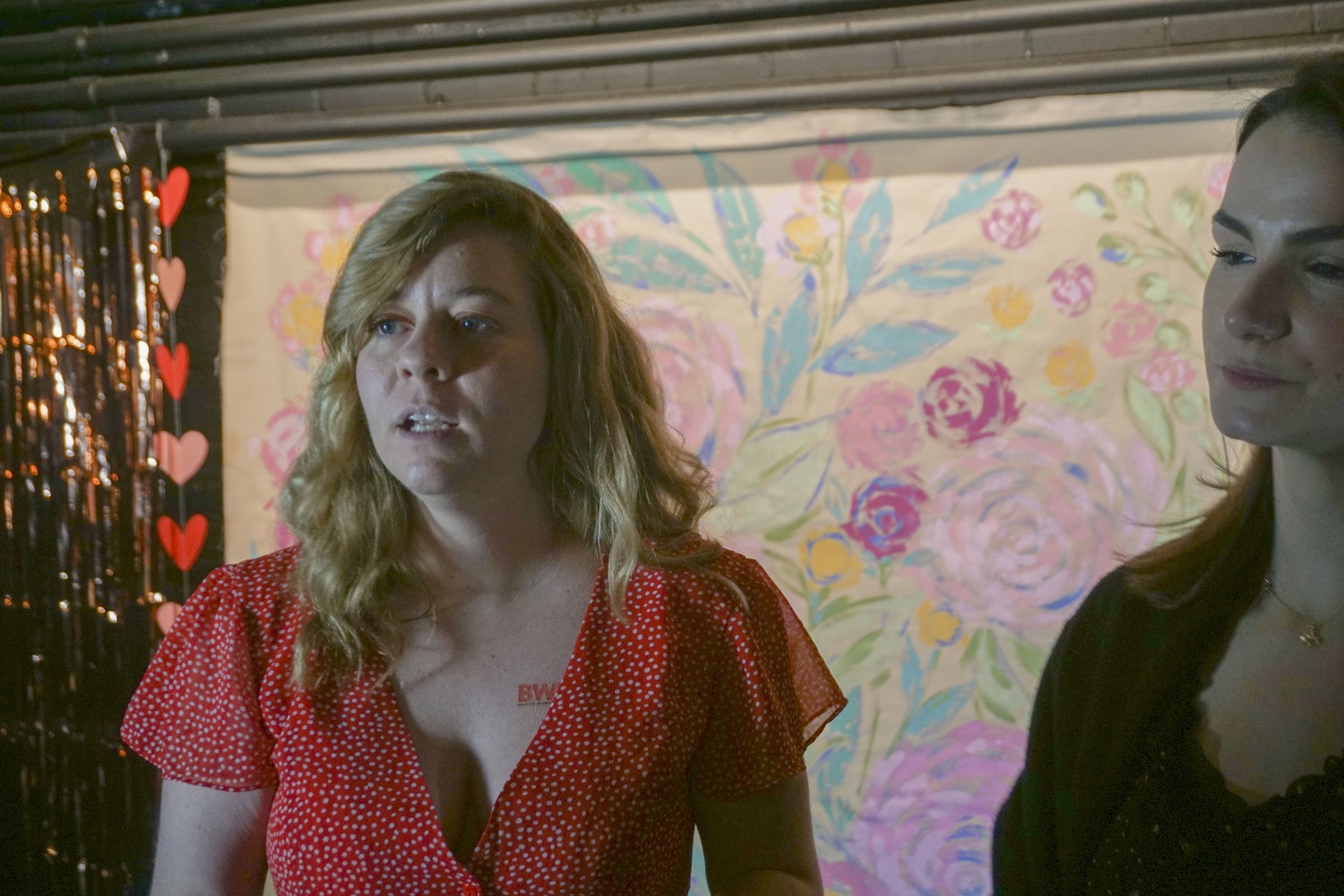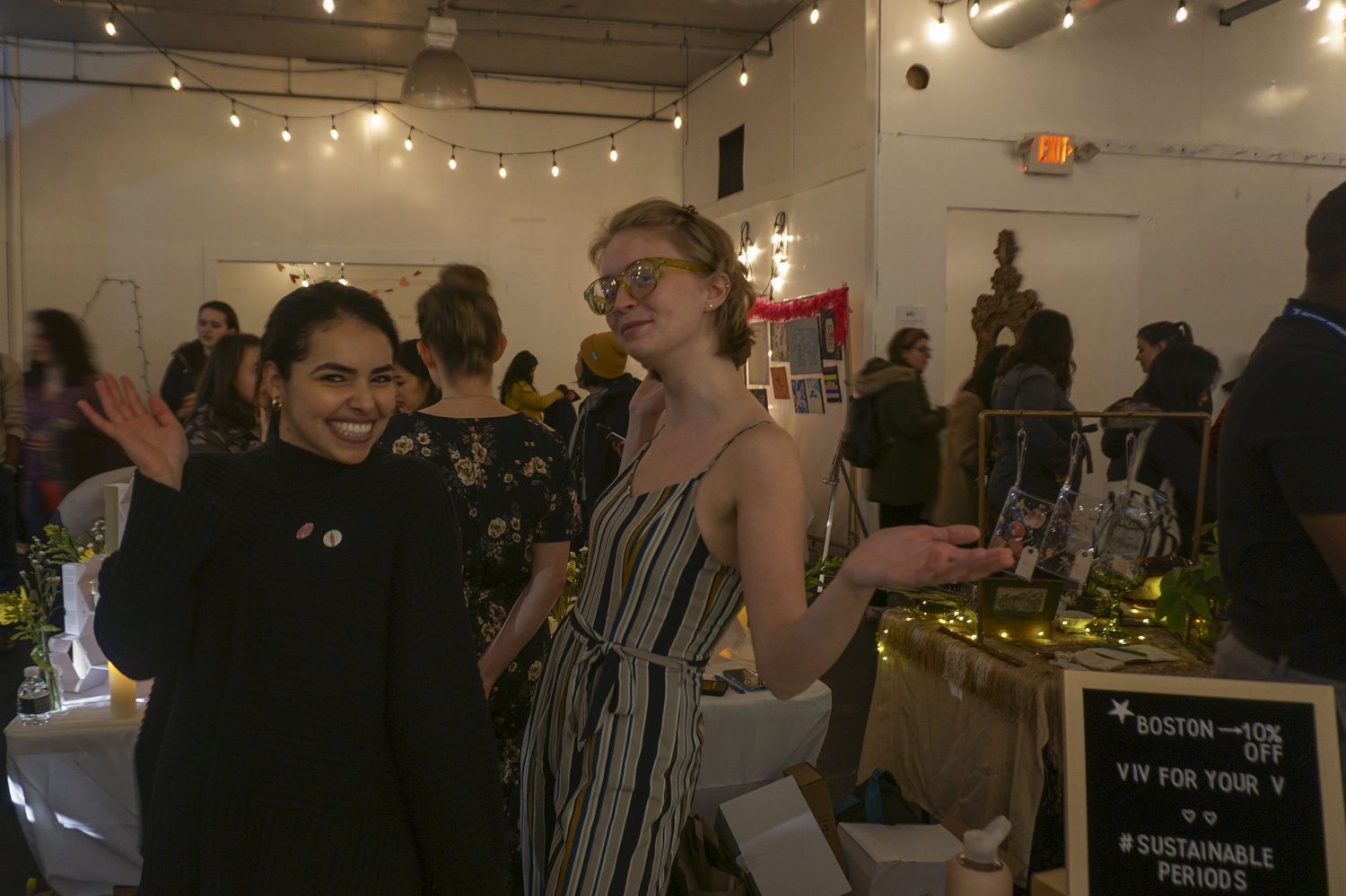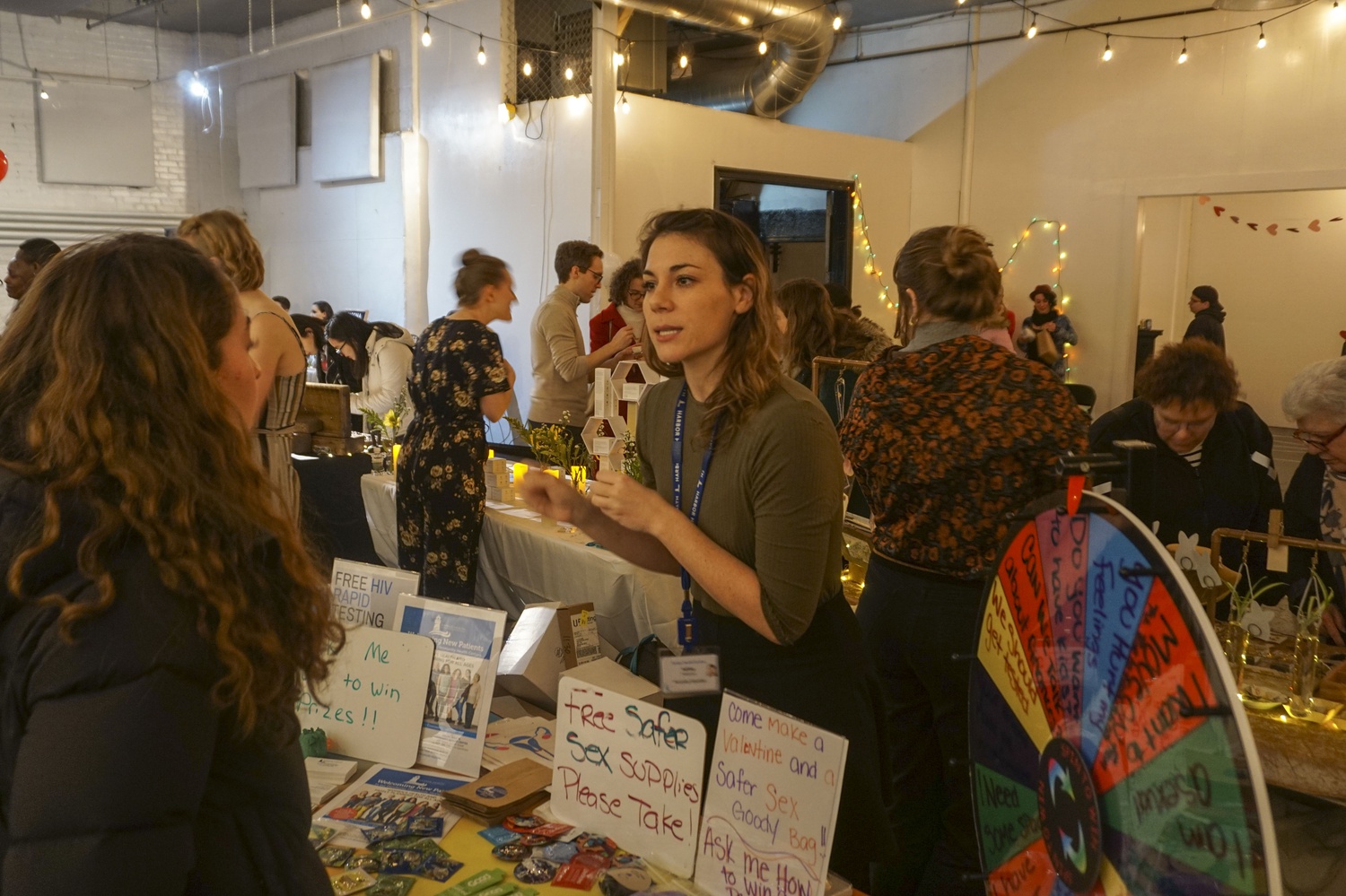
A Valentine’s Day Eve Self Love Potion
What is it about twinkly lights that transforms a repurposed warehouse?
It’s the night before Valentine’s Day, and I’m in the trendy Somerville event space Warehouse XI. Tonight, it houses the Boston Women’s Market Self Love Potion, which boasts a mocktail bar and about ten vendors selling clothes, jewelry, and skincare products. I note the t-shirts that say “feminist” in cursive lettering.
I’m slightly incredulous — why is it called a self-love potion? I certainly don’t see any potions in the cauldron-y sense. And besides the branding, this event doesn’t look any different from a collection of boutique shops. I feel skeptical of marketing that sells products typically targeted at women, just rebranded as self-love.
After checking in at the front table, I speak with Africa M. Rubio and Cara W. Loffredo, co-founders of the Boston Women’s Market. The main space is too loud and crowded with pre-professional twenty-somethings to have a conversation, so they lead me to the “Instagram room.” Inside, two spotlights illuminate a painted floral mural on the back wall. If neoliberalism is God, then Instagram is Mother Mary and the phenomenon of self-care Baby Jesus.

For the past three years, the Boston Women’s Market has served as “a network that promotes the work of and preserves a space for Womxn entrepreneurs and artists in the New England area,” according to its website. This Self-Love Potion event kicks off the group’s programming for 2020, Loffredo tells me. With over 20 events scheduled for this year and more than 200 vendors on their waiting lists, what began as a one-time marketplace in Jamaica Plain now spans the entire Boston area.
Keeping vendor fees low remains a top priority for the cofounders. “Instead of paying a fee for a table and a space at our events, we want [vendors] to reinvest the money they make at our events in their business,” Loffredo explains. “So the more fundraising opportunities we can create like this, the more efficient we can be.”
After my conversation with Loffredo and Rubio, I realize that the promotion of self-love isn’t necessarily the event’s goal, at least in the consumerist sense. Though it does tacitly embrace the idea that “self-love” can be purchased in the form of a blouse or a face mask, the point of the Self-Love Potion, like all the BWM marketplaces, has more to do with the economic empowerment of women-owned small business than the commodification of self-care.
Walking through the market, I see more variety in the vendors than I expected. “Do you want to talk about periods?” a woman asks from behind a yellow-clothed table in the middle of the room.
“Of course,” I respond.

Katie Y. Diasti, the Founder & CEO of Viv for Your V, is selling sustainable pads and liners made from bamboo and corn fiber packaged in aesthetically pleasing boxes. Her online shop offers both of these products, as well as a monthly delivery service. While chatting with Diasti about the softness of corn fiber and the antibacterial properties of bamboo, I notice a phallic wooden paper stand across across the room. I take Diasti’s card, apologize, and explain that I am more of a tampon girl but vehemently support the cause before heading to the mysterious table.
Unlike many of the skincare and clothing vendors, the representatives for Harbor Health, a community health center and education provider, aren’t selling any products. Rather, they’re spreading awareness about the center’s services, giving out safer sex barriers, and talking about healthy relationships.
“Our department does health education and community outreach,” explains Ashley D. Prettyman, a health educator with Harbor Health’s community outreach program. “That entails two major parts: One is nutrition-based, and the other is sexual-based — healthy relationships, domestic violence. We try to combat [these things] through education and through access.”

For a prize opportunity, I can spin a wheel for a healthy relationship discussion topic or fill out an anatomy sheet. I opt for the wheel. I land on a slot that reads, “someone hurt you,” and Prettyman and I discuss how to include more “I-statements” in my emotional confrontations.
Before I leave, I tell Prettyman that I didn’t expect to see an organization like Harbor Health at the Self-Love Potion. I anticipated Instagram walls, rosewater sprays, and expensive t-shirts — and, to be fair, the warehouse has no shortage of those. But on the table in front of me lies an array of condoms and natural lubricants, a “love-language quiz,” a handout labelled “different forms of attraction,” and information about healthcare providers in Boston.
Maybe this, too, is self-love.
—Magazine writer Josie F. Abugov can be reached at josie.abugov@thecrimson.com


